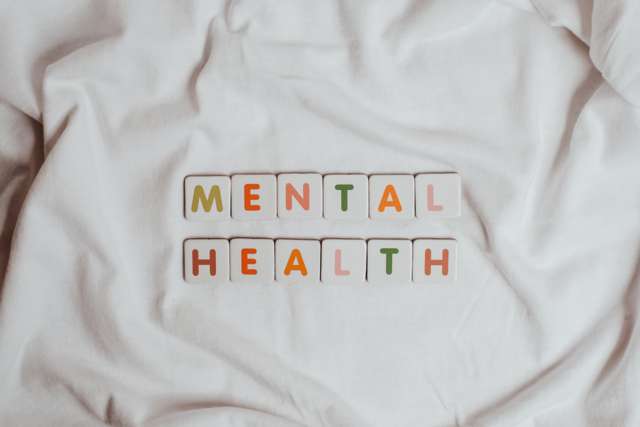
How Reflexology Helps Improve and Support Your Mental Health
When it comes to mental health, the conversation often revolves around therapy, medication, or perhaps mindfulness practices like meditation and yoga. However, reflexology is another powerful tool that can help improve and support your mental well-being.
You may have heard of reflexology as a way to relax or relieve tension, but what you may not realise is how this holistic therapy can support your mental health. In this blog, we're looking into how reflexology can help reduce anxiety, ease stress, promote relaxation, and even improve mood which all contribute to better mental well-being.
What is Reflexology?
Before exploring the benefits, let’s take a quick look at reflexology and what it is. Reflexology is a therapeutic practice that involves applying pressure to specific points on the feet, hands, and ears. These points correspond to different organs and systems in the body, creating a map reflexologists use to promote healing and balance.
While reflexology is known for its physical benefits, it also plays a significant role in improving emotional well-being by helping the body enter a state of deep relaxation and balance.
How Reflexology Improves Mental Health
- Reduces Stress and Anxiety
One of the most common reasons people book in for reflexology is to manage stress. Stress is often a major contributing factor to mental health struggles like anxiety and depression. When we’re stressed, our bodies release cortisol—a hormone that, when chronically elevated, can lead to anxiety, fatigue, irritability, and difficulty focusing.
Reflexology helps to reduce the production of cortisol by activating the parasympathetic nervous system, also known as the "rest and digest" system. This shifts the body out of the "fight or flight" mode that stress can cause, bringing a sense of calm and relaxation. Over time, this regular reduction in stress levels can contribute to long-term mental health benefits.
- Improves Sleep Quality
Sleep is essential for both physical and mental well-being. A lack of good-quality sleep can worsen symptoms of anxiety and depression, making it harder to cope with daily stress. Reflexology works by balancing the body's energy pathways, promoting relaxation, and encouraging better sleep patterns.
Several studies have found that reflexology can improve sleep quality by calming the nervous system and reducing insomnia. Better sleep means a clearer mind, improved mood, and enhanced emotional resilience, which are all key to supporting mental health.
- Promotes Emotional Balance
Reflexology is not just about physical relaxation. It also helps bring emotional balance. The therapy promotes the release of endorphins, which are the body’s natural "feel-good" hormones. Endorphins can help reduce feelings of anxiety and depression, creating a sense of well-being and improving overall mood.
Reflexology sessions are often seen as a safe, nurturing space where clients can let go of emotional baggage, breathe deeply, and simply be. This emotional release, combined with the physical benefits of the therapy, makes way for a holistic approach to mental health that treats both the mind and body as one.
Reflexology and the Gut-Brain Connection
Did you know that your gut plays a role in your mental health? The gut is often referred to as the "second brain" because it produces many of the same neurotransmitters, like serotonin, that are responsible for mood regulation. Reflexology works to support digestive health, which in turn supports your mental health.
By stimulating certain reflex points associated with the digestive system, reflexology can help to reduce digestive issues like bloating, indigestion, and even IBS, which are often linked to stress and anxiety. When your gut is happy, your mind tends to be happier too, thanks to the strong connection between gut health and emotional well-being.
The Long-Term Benefits of Reflexology for Mental Health
Consistency is key when it comes to reaping the mental health benefits of reflexology. While one session can bring immediate relief from stress and tension, regular treatments can lead to long-term improvements in mental well-being. Reflexology helps restore balance in the body, and as we experience less stress, better sleep, and improved mood, we’re better equipped to handle the challenges life throws our way.
Many of my clients have shared with me how reflexology has become a cornerstone in their self-care routines. Here’s one lovely testimonial:
"I was a real cynic about reflexology and also had a bit of a phobia about letting anyone near my feet. However, I was having a few issues and after trying other things I was willing to give anything a try. Within a couple of weeks my stomach issues had calmed. I was sleeping better and my anxiety levels had lowered. The sessions were making a huge difference and I was finding the treatment so relaxing and enjoyable. It helps that Shona has a very peaceful way about her and uses the perfect scented candles and background sounds to help relax you. Highly recommend as an alternative to the usual methods to treat many ailments. Great service."
Audrey, 44, Aberdeen
Is Reflexology Right for You?
If you’re struggling with stress, anxiety, or just feeling emotionally out of balance, reflexology could be a valuable addition to your mental health toolkit. It’s a gentle, non-invasive therapy that focuses on promoting self-healing, relaxation, and emotional well-being. The beauty of reflexology is that it addresses your mind and body as a whole, helping you to feel balanced and supported from the inside out.
Ready to Feel Calmer and More Grounded?
If you’re curious about how reflexology can support your mental health, why not give it a try? Whether you’re dealing with daily stress, sleepless nights, or simply want to bring more relaxation into your life, reflexology offers a natural, soothing way to improve your emotional well-being. You can book your next reflexology session here and start experiencing the benefits for yourself. Take a deep breath, and let your body and mind relax.